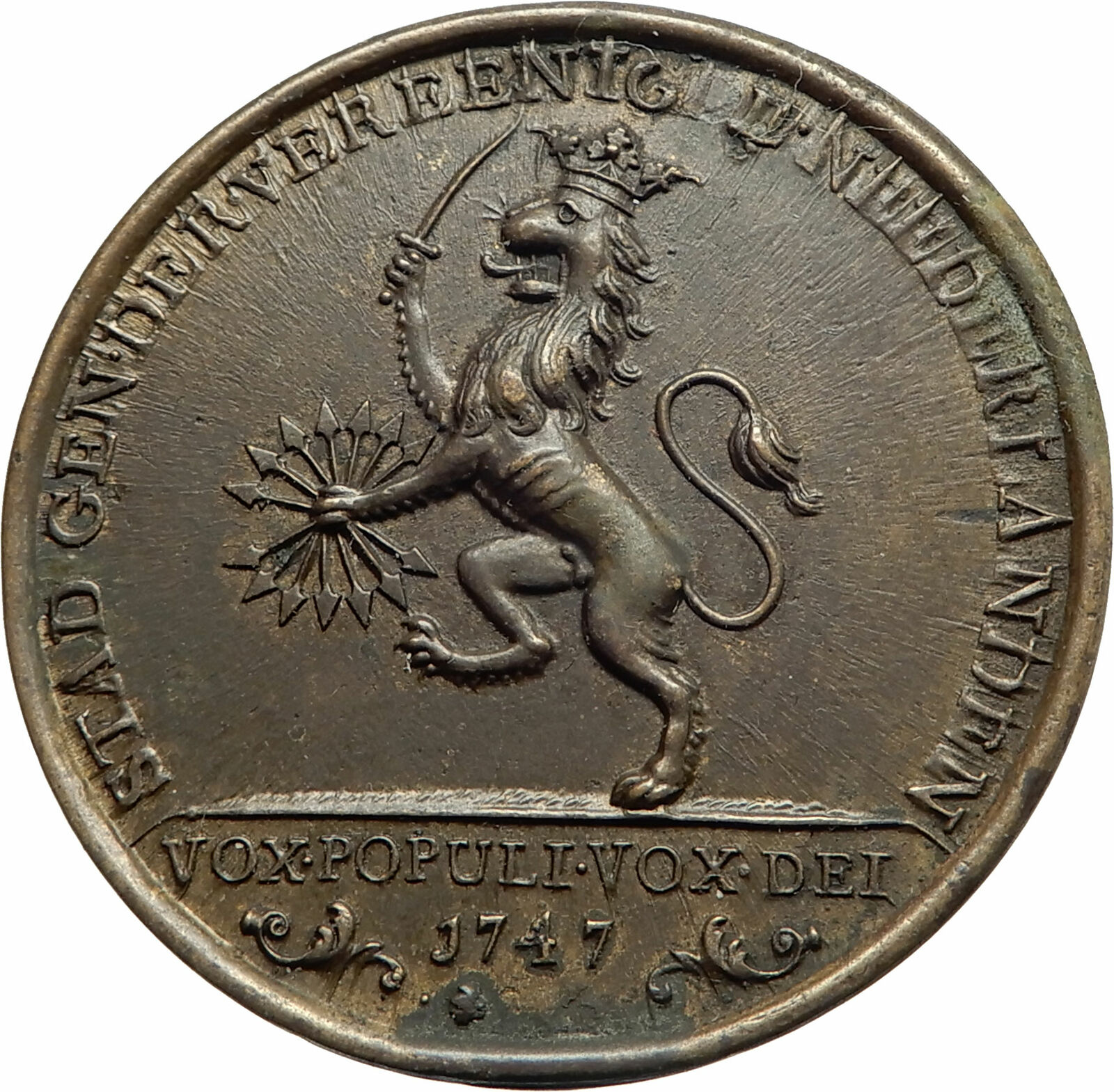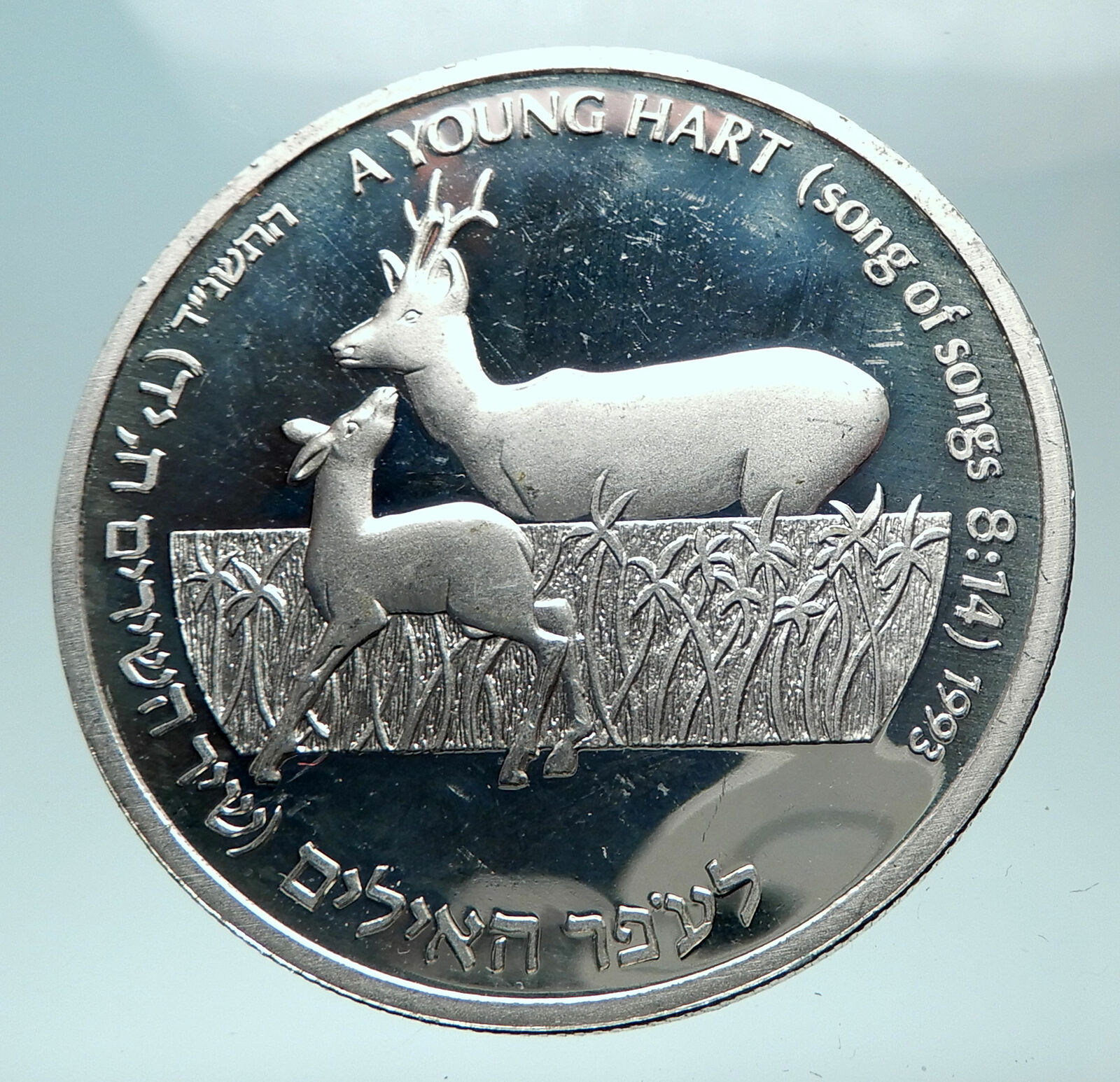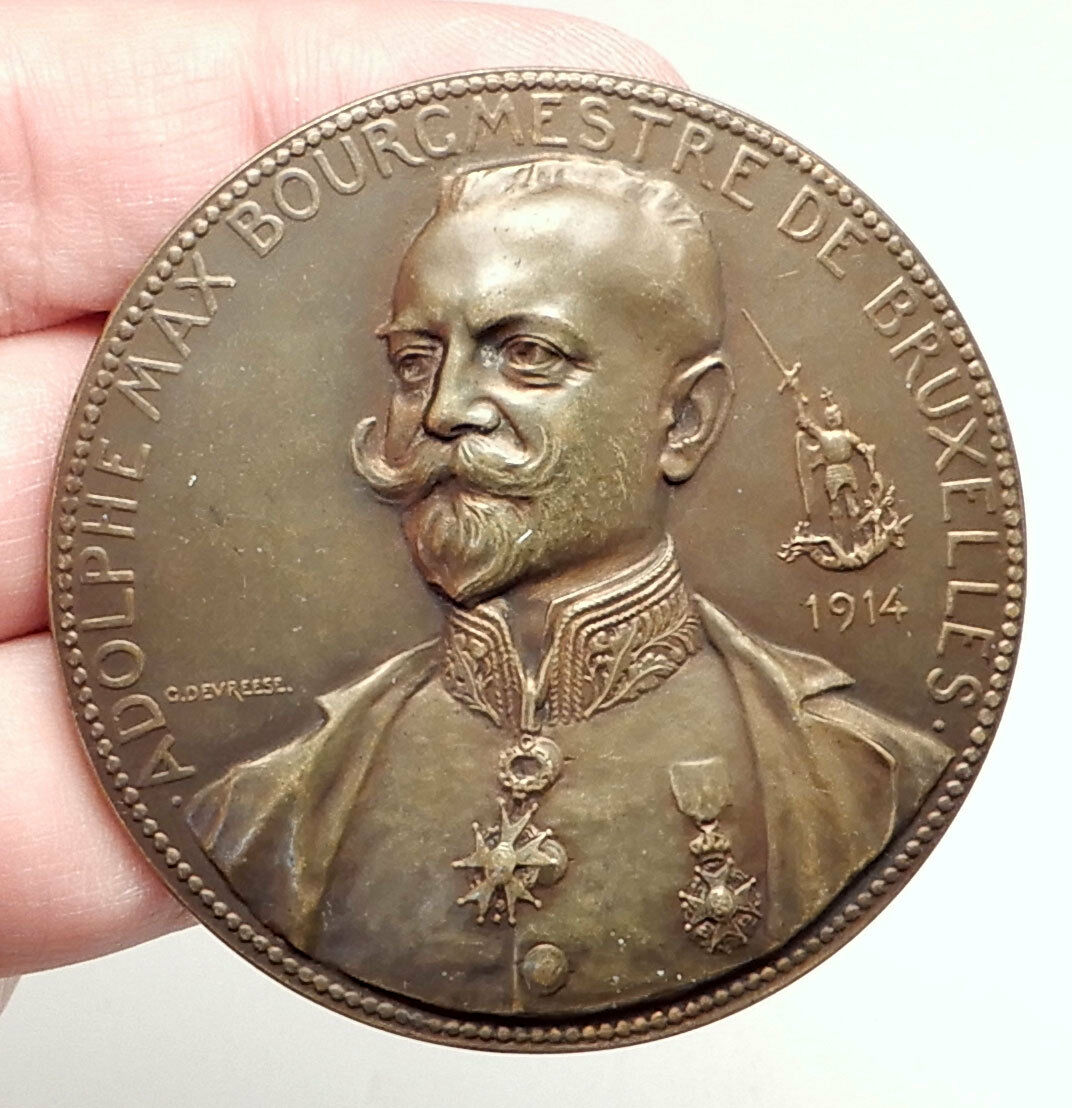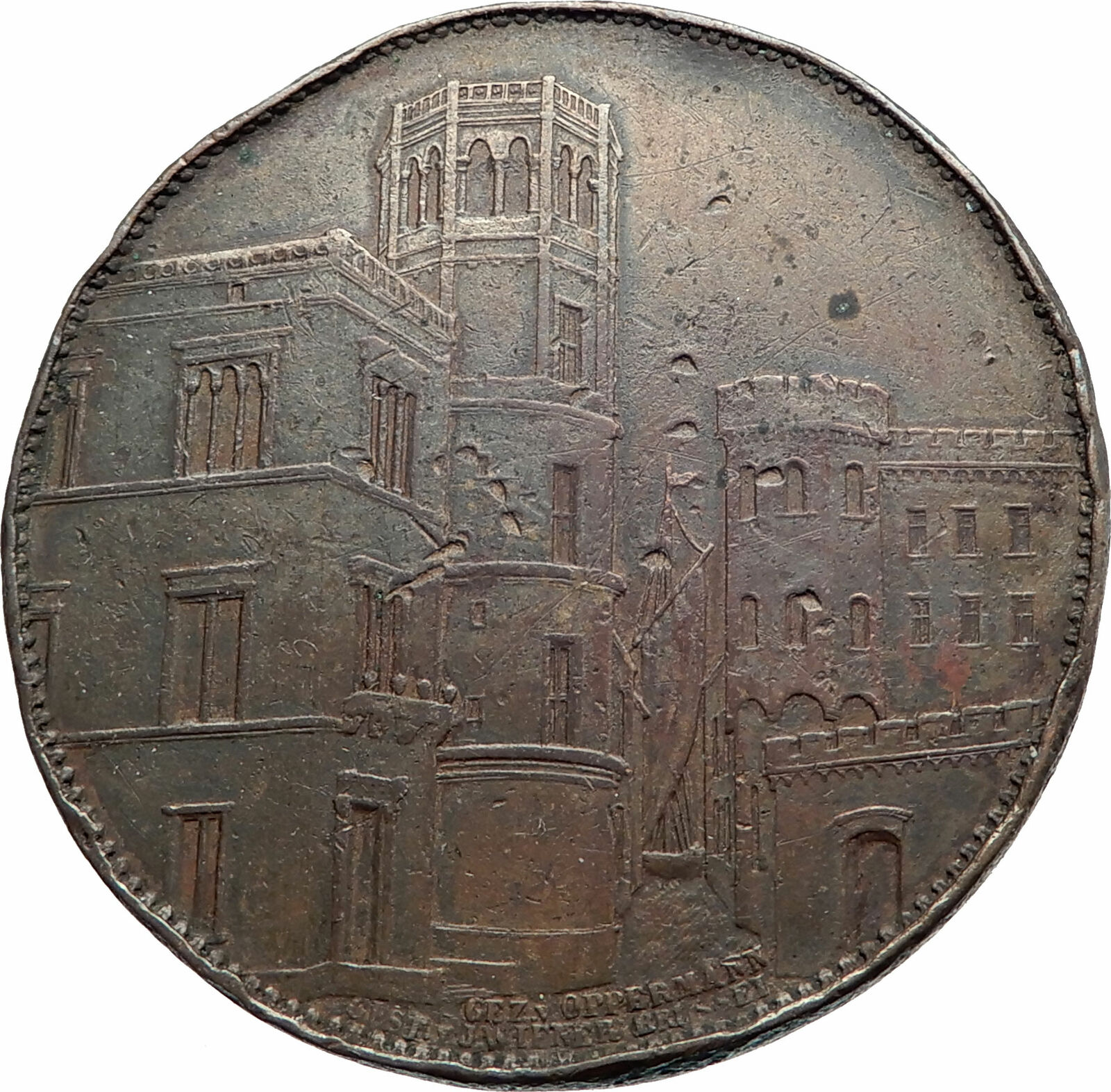|
Italy. Vatican
Pope Innocent XI – Pope: 21 September 1676 – 12 August 1689
1678 Dated Silver Medal 31mm (12.39 grams)
Reference: Bartolotti E-678
Certification: NGC XF 45 5720862-003
INNOCEN XI.PONT.M.A.II, Pope facing left.
AVDITE.VOCES.SVPPLICVM, Saints with swords and halos.
You are bidding on the exact item pictured, provided with a Certificate of Authenticity and Lifetime Guarantee of Authenticity.
.jpeg/240px-Jacob_Ferdinand_Voet_-_Portrait_of_Innocenzo_XI_Odescalchi_(cropped).jpeg) Pope Innocent XI (Latin: Innocentius XI; 16 May 1611 – 12 August 1689), born Benedetto Odescalchi, was Pope from 21 September 1676 to his death on August 12, 1689. He is known in Budapest as the “Saviour of Hungary”. Pope Innocent XI (Latin: Innocentius XI; 16 May 1611 – 12 August 1689), born Benedetto Odescalchi, was Pope from 21 September 1676 to his death on August 12, 1689. He is known in Budapest as the “Saviour of Hungary”.
Much of his reign was concerned with tension with Louis XIV of France. A conservative, he lowered taxes in the Papal States during his pontificate and he also produced a surplus in the papal budget. Because of this surplus he repudiated excessive nepotism within the Church. Innocent XI was frugal in matters of governing the Papal States, from dress to leading a life with Christian values. Once he was elected to the Papacy, he applied himself to moral and administrative reform of the Roman Curia. He abolished sinecures and pushed for greater simplicity in preaching as well as greater reverence in worship-requesting this of both the clergy and faithful.
After a difficult cause for canonization, starting in 1791, which caused considerable controversy over the years and which was stopped on several occasions, he was beatified with no opposition[citation needed] in 1956 by Pope Pius XII.
Benedetto Odescalchi was born in Como on 16 May 1611, the son of a Como nobleman, Livio Odescalchi, and Paola Castelli Giovanelli from Gandino. His siblings were Carlo, Lucrezia, Giulio Maria, Constantino, Nicola and Paolo. He also had several collateral descendants of note through his sister: her grandson Cardinal Baldassare Erba-Odescalchi, Cardinal Benedetto Erba Odescalchi, and Cardinal Carlo Odescalchi.
The Odescalchi, a family of minor nobility, were determined entrepreneurs. In 1619, Benedetto’s brother founded a bank with his three uncles in Genoa which quickly grew into a successful money-lending business. After completing his studies in grammar and letters, the 15-year-old Benedetto moved to Genoa to take part in the family business as an apprentice. Lucrative economic transactions were established with clients in the major Italian and European cities, such as Nuremberg, Milan, Kraków, and Rome.
In 1626 Benedetto’s father died, and he began schooling in the humane sciences taught by the Jesuits at his local college, before transferring to Genoa. In 1630 he narrowly survived an outbreak of plague, which killed his mother.
Some time between 1632 and 1636, Benedetto decided to move to Rome and then Naples in order to study civil law. This led to his securing the offices of protonotary apostolic, president of the apostolic chamber, commissary of the Marco di Roma, and governor of Macerata; on 6 March 1645, Pope Innocent X (1644-55) made him Cardinal-Deacon with the deaconry of Santi Cosma e Damiano. He subsequently became legate to Ferrara. When he was sent to Ferrara in order to assist the people stricken with a severe famine, the Pope introduced him to the people of Ferrara as the “father of the poor.”
In 1650, Odescalchi became bishop of Novara, in which capacity he spent all the revenues of his see to relieve the poor and sick in his diocese. He participated in the 1655 conclave. With the permission of the pope he resigned as bishop of Novara in favor of his brother Giulio in 1656 and went to Rome. While there he took a prominent part in the consultations of the various congregations of which he was a member. He participated in the 1669-70 conclave.
Election
Odescalchi was a strong papal candidate after the death of Pope Clement IX (1667-69) in 1669, but the French government rejected him (using the now-abolished veto). After Pope Clement X (1670-76) died, Louis XIV of France (1643-1715) again intended to use his royal influence against Odescalchi’s election. Instead, believing that the cardinals as well as the Roman people were of one mind in their desire to have Odescalchi as their Pope, Louis reluctantly instructed the French party cardinals to acquiesce in his candidacy.
On 21 September 1676, Odescalchi was chosen to be Clement X’s successor and took the name of Innocent XI. He chose this name in honour of Pope Innocent X, who made him a cardinal in 1645. He was formally crowned as pontiff on 4 October 1676 by the protodeacon, Cardinal Francesco Maidalchini.
Reforming the administration of the Papacy
Immediately upon his accession, Innocent XI turned all his efforts towards reducing the expenses of the Curia. He passed strict ordinances against nepotism among the cardinals. He lived very parsimoniously and exhorted the cardinals to do the same. In this manner he not only squared the annual deficit which at his accession had reached the sum of 170,000 scudi, but within a few years the papal income was even in excess of the expenditures. He lost no time in declaring and practically manifesting his zeal as a reformer of manners and a corrector of administrative abuses. Beginning with the clergy, he sought to raise the laity also to a higher moral standard of living. He closed all of the theaters in Rome (considered to be centers of vice and immorality) and famously brought a temporary halt to the flourishing traditions of Roman opera. In 1679 he publicly condemned sixty-five propositions, taken chiefly from the writings of Escobar, Suarez and other casuists (mostly Jesuit casuists, who had been heavily attacked by Pascal in his Provincial Letters) as propositiones laxorum moralistarum and forbade anyone to teach them under penalty of excommunication. He condemned in particular the most radical form of mental reservation (stricte mentalis) which authorised deception without an outright lie.
Personally not unfriendly to Miguel de Molinos, Innocent XI nevertheless yielded to the enormous pressure brought to bear upon him to confirm in 1687 the judgement of the inquisitors by which sixty-eight quietist propositions of Molinos were condemned as blasphemous and heretical.
Jewish relations
Innocent XI showed a degree of sensitivity in his dealings with the Jews within the Italian States. He compelled the city of Venice to release the Jewish prisoners taken by Francesco Morosini in 1685. He also discouraged compulsory baptisms which accordingly became less frequent under his pontificate, but he could not abolish the old practice altogether.
More controversially on 30 October 1682, he issued an edict by which all the money-lending activities carried out by the Roman Jews were to cease. Such a move would incidentally have financially benefitted his own brothers who played a dominant role in European money-lending. However ultimately convinced that such a measure would cause much misery in destroying livelihoods, the enforcement of the edict was twice delayed.
|









.jpeg/240px-Jacob_Ferdinand_Voet_-_Portrait_of_Innocenzo_XI_Odescalchi_(cropped).jpeg) Pope Innocent XI (Latin: Innocentius XI; 16 May 1611 – 12 August 1689), born Benedetto Odescalchi, was Pope from 21 September 1676 to his death on August 12, 1689. He is known in Budapest as the “Saviour of Hungary”.
Pope Innocent XI (Latin: Innocentius XI; 16 May 1611 – 12 August 1689), born Benedetto Odescalchi, was Pope from 21 September 1676 to his death on August 12, 1689. He is known in Budapest as the “Saviour of Hungary”. 




